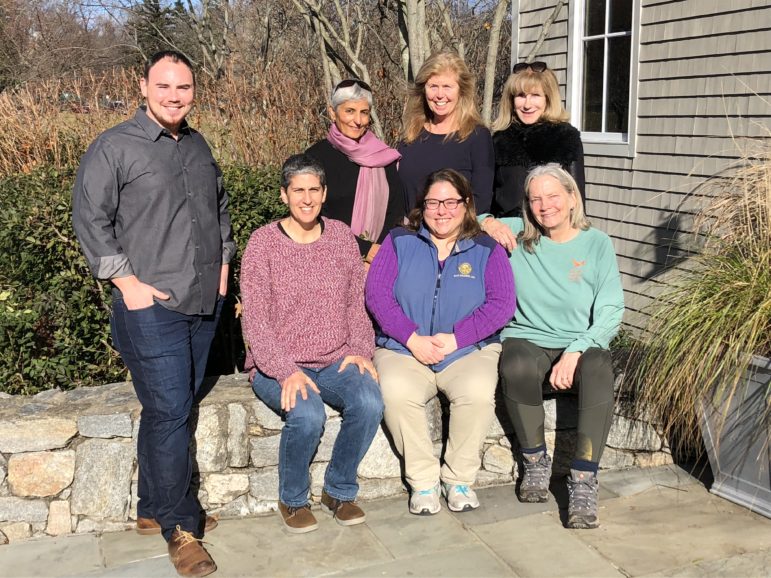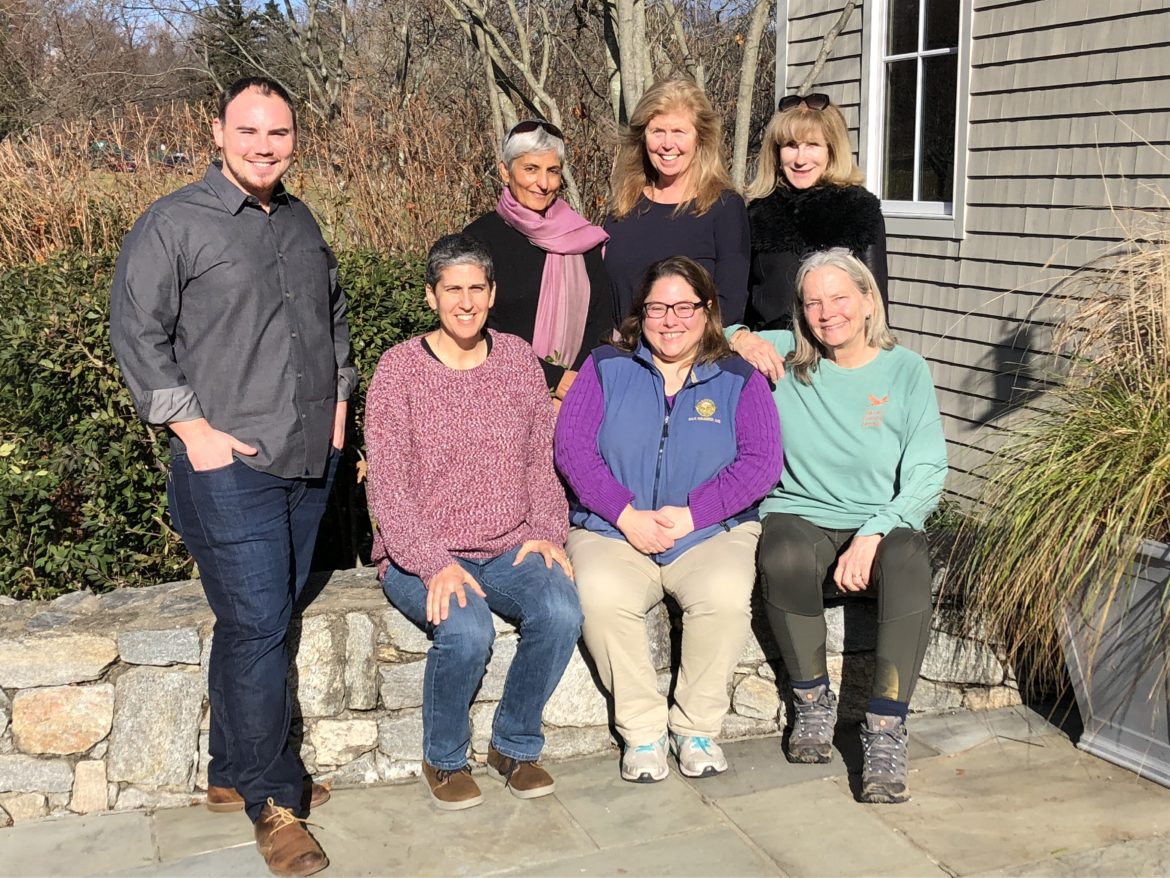A collaboration of Darien residents and groups in town have joined a movement in other places to create a “Pollinator Pathway” through town to protect and encourage bees and other pollinators from the many threats they face.
“It is well-documented that our pollinator population faces many threats,” says a news release from the group. Those threats include climate change and the use of pesticides as well as loss and fragmentation of natural habitat from development, particularly in the Northeast.
The collaborators include Darien residents from various groups in town, starting with the Darien Nature Center, the Garden Club of Darien, the Gardener’s Center and Florist and Darien Library.

Photo by Leah Salomoni
BACK ROW: Pollinator Pathway Co-Chair Deepika Saksena, Nature Center Executive Director Leila Wetmore, Pollinator Pathway co-chair Juliet Cain. FRONT: Gardener’s Center owner Kris Barker, Nature Center Program Director Emily Ciffone, Darien Librarian Susie Skerrett, Nature Center Program Teacher Nina Miller
The entire town is considered to be in Darien’s pathway, which allows it to “link” easily with the pathways starting up in Norwalk, Stamford and New Canaan as well as Weston, Wilton and Ridgefield.
“As towns form their own Pathways, we will eventually have a seamless and safe corridor for pollinators across Fairfield County,” the news release says.
Here’s more of the announcement from the group:
The Pathway will provide a pesticide-free and native plant habitat on both public and private properties. This means that pollinators will have the nutrition they need to do their work of moving pollen from one plant to another to enable reproduction and the growth of new plants.
More than 90 percent of crop types need bees for pollination. In fact, it is estimated that the value of pollination by bees is over $12 billion annually in the U.S. alone! Other pollinators include butterflies, birds, bats, beetles and other insects.
Pollinators are not the only ones who would benefit from a pesticide-free environment. Chemically derived insecticides, herbicides, fungicides and fertilizers have been shown to cause hormonal disruption (particularly in relation to the male reproductive system), cancers, birth defects and neurological effects.
Contamination in our landscapes can last for years. The U.S. Fish and Wildlife Service states that homeowners now use 10 times more chemicals per acre than farmers. So in fact that is good news because it means that change is within our control.
By having landscapes that are free from harmful chemicals and by growing native plants to provide our pollinators with food and habitat you will be able to participate in the Pathway and play a role in protecting our environment, our food source and our health.
Look out for details of exciting Pollinator Pathway events starting in the new year! For more information about the Pollinator Pathway, safe landscaping practices and native plants, please go to our website or contact us at darien@pollinatorpathway.org. You can also follow us on Instagram @DarienPollinatorPathway.


Pingback: Darien Pollinator Pathway Event with Wine, Cheese, Classes on Native Seeds and Floral Design - DarieniteDarienite